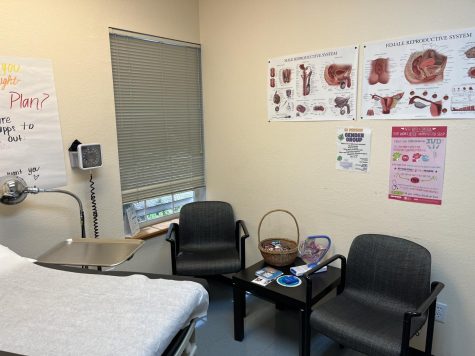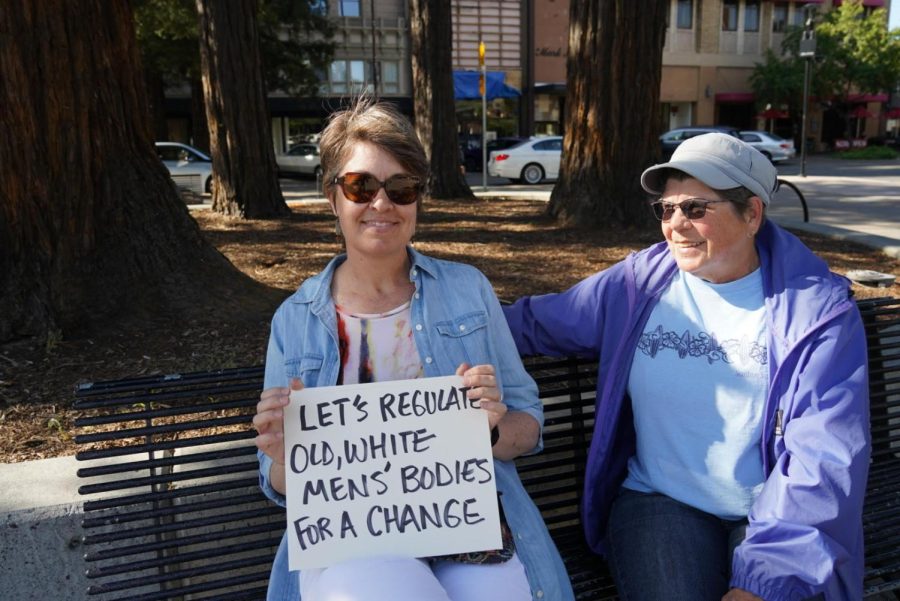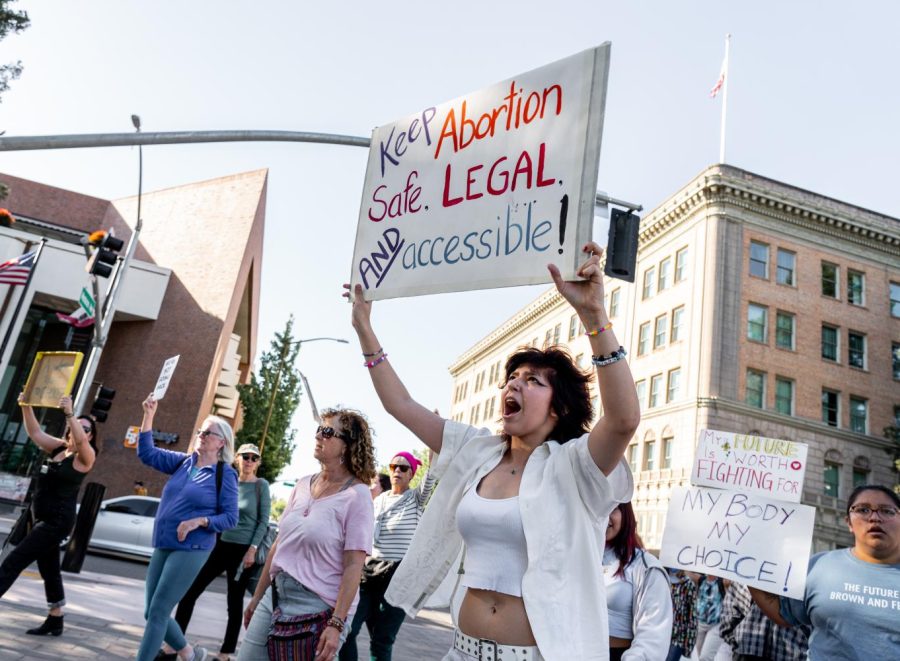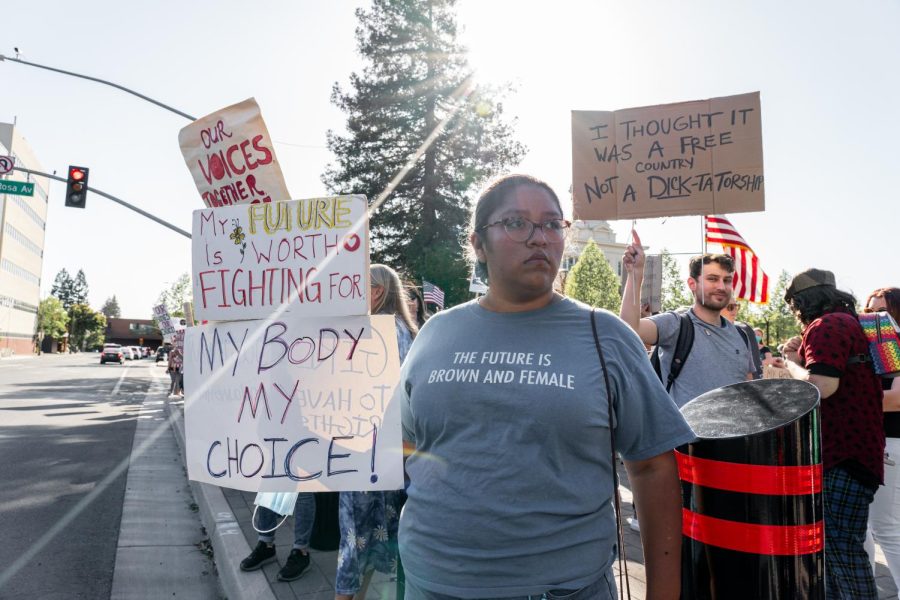Abortion rights under attack across America
May 1, 2022
College student Lily, 22, was between four and six weeks along when she discovered she was pregnant. Her IUD birth control had failed.
She knew she wanted to get an abortion right away. “I have never wanted to be pregnant or be a parent and it just wasn’t an option for me,” Lily said.
As a Californian, Lily knew she could access an abortion, and felt immensely grateful for that. She made an appointment through Planned Parenthood, the cheapest option, and paid $400 to terminate her pregnancy.
“All they had to do was give me an ultrasound and take my IUD out,” she said. “They did some tests and stuff, but all they had to do was give me a pill. I was in there for hours and hours, with no one checking on me.”
Being left alone in an unfamiliar room was the hardest part, as she couldn’t bring support due to COVID-19 protocols. She felt nervous and scared.
Luckily, Lily had several supportive friends and family members to help her get through the experience. She was able to confide in her mother, who also had an abortion due to failed birth control. However, mixed emotions can arise in this situation.
“I still felt a lot of shame for it,” she said. “I had some sort of solace because I had birth control that had failed me, so I felt like it wasn’t really my fault, or I hadn’t been irresponsible.”
Lily was thankful to have local access to reproductive care. Women in more than a dozen other states are not so fortunate.
Lily shares her story
Lily is a 22-year-old California resident who tells about getting an abortion after her birth control failed.
Podcast: Play in new window | Download

Protesters chant in support of reproductive rights at Courthouse Square on May 3.
26 states restrict reproductive rights
In 26 states women are seeing their access to reproductive rights disappear as the hot-button issue is contested across courtrooms and debate halls by everyone from politicians to priests. It’s a topic widely argued, one that has divided Americans along religious, political and gender lines. Two groups surface from the chaotic fights: pro-choice and pro-life. Both call each other murderers. One killing humans, the other killing liberties.
The United States Supreme Court ruled in favor of allowing women the right to an abortion in 1973. Roe v. Wade made history, beginning in Texas, trickling across the country. Yet, the road ahead was rocky, as future lawmakers would stand to threaten abortion rights. Over the past few years, Southern states have chipped away at abortion rights with new laws restricting access based on the age of fetus and issuing fines and punishments for abortion providers.
Though abortion is legal nationwide, it’s up to an individual state’s discretion how and if the process occurs.
In 2021, Texas created the nation’s most restrictive law, banning abortions past six weeks. Opponents say most women do not know they are pregnant by then, let alone have the time to make a decision. The law offers no exemptions to rape or incest victims.
Oklahoma followed their neighboring states with an even more prohibitive law banning almost all abortions from conception. Oklahoma’s bill also bans abortion after six weeks and gives citizens the right to sue abortion providers. It only allows women to get abortions if the pregnancy threatens the woman’s life.
Other states, including Alabama, Arkansas, and Idaho, also have new restrictive laws.
As individual states moved to create abortion restrictions, the Supreme Court was making adjustments behind the curtains. News outlet Politico released an article titled, “Supreme Court has voted to overturn abortion rights, draft opinion shows,” on May 2, 2022.
An unknown source leaked the draft of Justice Samuel Alito’s opinion to overturn Roe v. Wade. If Roe v. Wade is overturned, states will be left to decide for themselves how abortion processes should be handled, and all of the new abortion laws will go into effect federally uncontested.
Pro-choice rally and reactions to the leak
Should abortion be legal? Here’s who agrees
Pro-Choice marchers protest in Old Courthouse Square in response to leaked Supreme Court draft overturning Roe v. Wade
Natalia Diaz heads a march around Old Courthouse Square during a pro-choice rally on May 3, 2022 in Santa Rosa, Calif.
A modest crowd of more than 50 people gathered in Santa Rosa’s Courthouse Square Tuesday to voice opposition to a recently leaked Supreme Court draft opinion that could potentially overturn the landmark Roe v. Wade decision, which has guaranteed federal protection of abortion rights since 1973.
The crowd stood at the edge of the square waving recycled signs of pizza boxes and coat hangers to traffic on Third Street as countless motorists honked in support.
“Honk your horns for women’s rights,” screamed Thea Hansel at the corner of Santa Rosa Avenue while wearing a pink hat with ears.
The diverse crowd included men, women, children and non-binary individuals. Participants had their own unique reasons for showing out to support abortion rights.
Justice Samuel Alito’s draft of the opinion was leaked to the news organization Politico by an unknown source. The draft signifies that after nearly half a century the supreme court is prepared to overturn Roe v. Wade, with Alito stating, “Roe was egregiously wrong from the start.”
The document, now publicly displayed by several media outlets, has received harsh criticism from pro-choice fighters. Supreme Court Chief Justice John Roberts launched an investigation into the leak.
Many attendees voiced concern over the world younger women may come of age in, if Roe v. Wade is overturned.
“I’m here fighting for young women so they have a choice. I had a choice, and I exercised that choice, and it changed the course of my life,” said Katie Moore as she proudly held her homemade cardboard sign.
“I’m here for my 17-year-old daughter at home,” said Cheryl Witteman. “This is simply our constitutional right to privacy. Abortion is [a] medical treatment.”
“I used to be pro-life until I had a baby and realized it was not a good thing to force people to do,” said Marie Millard.
Young women, who made up only a small fraction of the crowd, were some of the loudest voices.
“There’s not enough youngsters out here. Growing up in this generation it’s very important to us. It’s very important to me that our women feel safe,” said Natalia Diaz after leading a march around the square. “It’s not right for anybody to tell anybody what they can or can’t do with their own bodies.”
Marie Fisher, another young protestor, said she was fighting for her future. “The fact that women are getting their rights taken away is just insane to me. Women’s safety will be challenged,” she said.
Leslie Graves, an organizer for women’s marches in Sonoma County, strongly opposed the decision. “The draft of this decision is a travesty and will set us back to the dark ages,” she said. “We can’t let it happen.”
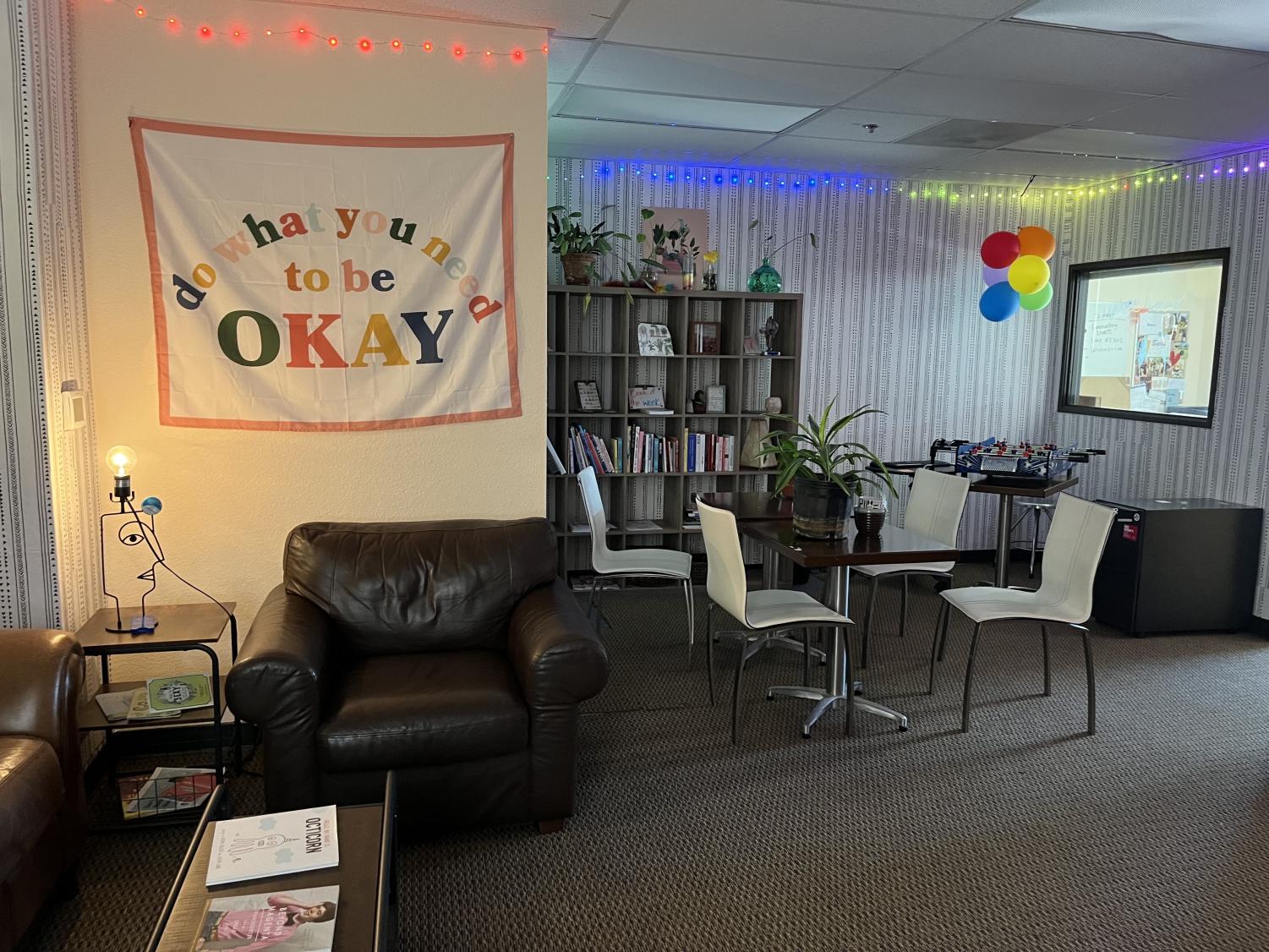
The West County Teen Clinic offers an array of reproductive health services for Sonoma County teenagers.
California’s endless abortion rights localized
Unlike the GOP-dominated states, California is famous for its free opportunities, from legalized marijuana to minimum restrictions on reproductive care. The golden state allows for women to take the abortion process into their own hands, with over-the-counter medications for terminating a pregnancy.
From Planned Parenthood to local clinics, California has resources that the rest of the nation struggles to provide.
One local resource is the West County Teen Clinic in Sebastopol. It offers anyone from 12 to 25-years-old free and confidential access to different birth control methods, STD testing, pap smears, counseling, emergency contraceptives, pregnancy testing and sexual health check ups.
Becca Mitchell, 24, is the education and outreach specialist at the West County Teen Clinic. She runs the peer education program and also teaches health and sex ed in local schools, all in West County.
“I think reproductive health has a stigma attached to it and people are very uncomfortable to talk about it, and so by making this a welcoming and open environment we try to combat that stigma,” Mitchell said.
Mitchell also recognizes the freedom living in a state like California provides.
After the draft of the overturn of Roe v. Wade was released, Santa Rosans, furious with the situation, protested at Courthouse Square to raise awareness for this intensifying issue.
“I’m here because we need to support women who need what they need. I’ve had an abortion, and we don’t need women dying to be in charge of their reproductive rights,” said Debbie Ebling.
“I used to be pro life until I had a baby and then realized it wasn’t a good thing to force on someone else. It’s horrible,” said Marie Millard.
Tyler Anthony and Katie Watts both agreed that change can be made before the situation worsens.
Lily, who overcame both physical and mental health challenges after her abortion, emphasized that as a society we should be normalizing abortion. Thousands of women every year require access to abortion care, yet there is still a stigma in this country.
“There’s nothing shameful about it. I could not be more grateful for that opportunity, because my life would be so much worse if I had had to go through the pregnancy and have the kid.”
Interview with Becca Mitchell, West County Teen Clinic specialist
Becca Mitchell is the education and outreach specialist at the West County Teen Clinic in Sebastopol, California. She runs the clinic’s peer education program and teaches sex education at local schools.
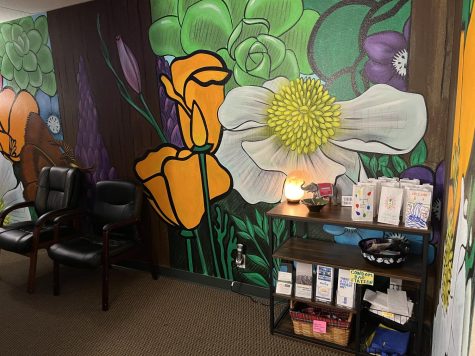
Podcast: Play in new window | Download

